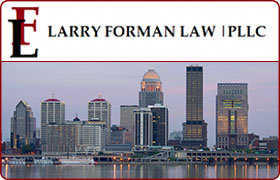Lexington Criminal Lawyer, Kentucky, page 5
Sponsored Law Firm
-
 x
x

Click For More Info:
-
Larry Forman Law, PLLC
138 South Third Street, Suite 209 Louisville, KY 40202» view mapDUI, Car Accident, Criminal Defense Top Rated Kentucky DUI Defense Lawyer
I understand the need to prepare a strong defense and takes every case seriously and personally. I will fight to get you justice. I offer free consultations, contact me today.
800-926-1391
Bert Edward Barker
Other, Federal Appellate Practice, Family Law, Criminal
Status: In Good Standing *Status is reviewed annually. For latest information visit here Licensed: 47 Years
Bienvenido M Cabuay
Criminal
Status: In Good Standing *Status is reviewed annually. For latest information visit here
Billie Joseph Davenport
Government, Juvenile Law
Status: In Good Standing *Status is reviewed annually. For latest information visit here
Billy Ray Shelton
Energy, Industry Specialties, Environmental Law, Criminal
Status: In Good Standing *Status is reviewed annually. For latest information visit here
Bing I Bush
Criminal
Status: In Good Standing *Status is reviewed annually. For latest information visit here
Blanton Clay Sousley
Criminal, Civil Rights, Administrative Law
Status: In Good Standing *Status is reviewed annually. For latest information visit here
Bonnie K Potter
General Practice
Status: In Good Standing *Status is reviewed annually. For latest information visit here
Bradley Clark
Criminal, DUI-DWI, Felony, Misdemeanor, White Collar Crime
FREE CONSULTATION
CONTACTBradley C Hooks
Lawsuit & Dispute, Criminal, Civil Rights, Car Accident
Status: In Good Standing *Status is reviewed annually. For latest information visit here
Bradley S Guthrie
Criminal, Accident & Injury, Civil Rights, Employment
Status: In Good Standing *Status is reviewed annually. For latest information visit here
 Larry Forman Louisville,KY
Larry Forman Louisville,KY About UsLarry Forman
About UsLarry Forman Contact UsCall or Email Now
Contact UsCall or Email Now